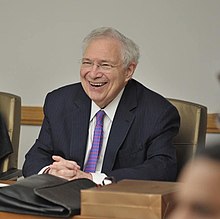
In ethics, casuistry is a process of reasoning that seeks to resolve moral problems by extracting or extending abstract rules from a particular case, and reapplying those rules to new instances. This method occurs in applied ethics and jurisprudence. The term is also used pejoratively to criticise the use of clever but unsound reasoning, especially in relation to moral questions. It has been defined as follows:
Study of cases of conscience and a method of solving conflicts of obligations by applying general principles of ethics, religion, and moral theology to particular and concrete cases of human conduct. This frequently demands an extensive knowledge of natural law and equity, civil law, ecclesiastical precepts, and an exceptional skill in interpreting these various norms of conduct....
Bioethics is both a field of study and professional practice, interested in ethical issues related to health, including those emerging from advances in biology, medicine, and technologies. It proposes the discussion about moral discernment in society and it is often related to medical policy and practice, but also to broader questions as environment, well-being and public health. Bioethics is concerned with the ethical questions that arise in the relationships among life sciences, biotechnology, medicine, politics, law, theology and philosophy. It includes the study of values relating to primary care, other branches of medicine, ethical education in science, animal, and environmental ethics, and public health.
Medical ethics is an applied branch of ethics which analyzes the practice of clinical medicine and related scientific research. Medical ethics is based on a set of values that professionals can refer to in the case of any confusion or conflict. These values include the respect for autonomy, non-maleficence, beneficence, and justice. Such tenets may allow doctors, care providers, and families to create a treatment plan and work towards the same common goal. It is important to note that these four values are not ranked in order of importance or relevance and that they all encompass values pertaining to medical ethics. However, a conflict may arise leading to the need for hierarchy in an ethical system, such that some moral elements overrule others with the purpose of applying the best moral judgement to a difficult medical situation. Medical ethics is particularly relevant in decisions regarding involuntary treatment and involuntary commitment.
Joseph J. Fins, M.D., D. Hum. Litt., M.A.C.P., F.R.C.P. is an American physician and medical ethicist. He is chief of the Division of Medical Ethics at New York Presbyterian Hospital and Weill Cornell Medical College, where he serves as The E. William Davis Jr., M.D. Professor of Medical Ethics, and Professor of Medicine, Professor of Public Health, and Professor of Medicine in Psychiatry. Fins is also Director of Medical Ethics and an attending physician at New York Presbyterian Hospital-Weill Cornell Medical Center. Fins is also a member of the adjunct faculty of Rockefeller University and has served as Associate for Medicine at The Hastings Center. He is the Solomon Center Distinguished Scholar in Medicine, Bioethics and the Law and a Visiting Professor of Law at Yale Law School. He was appointed by President Bill Clinton to The White House Commission on Complementary and Alternative Medicine Policy and currently serves on The New York State Task Force on Life and the Law by gubernatorial appointment.
William J. Winslade is the James Wade Rockwell Professor of Philosophy of Medicine at the Institute for Medical Humanities, University of Texas Medical Branch at Galveston and Distinguished Visiting professor of Law and associate director for Graduate Programs, Health Law & Policy Institute at the University of Houston Law Center. He is a fellow of the Hastings Center, an independent bioethics research institution.
Albert R. Jonsen was one of the founders of the field of Bioethics. He was Emeritus Professor of Ethics in Medicine at the University of Washington, School of Medicine, where he was Chairman of the Department of Medical History and Ethics from 1987 to 1999. After retiring from UW, he returned to San Francisco, where he co-founded the Program in Medicine and Human Values at Sutter Health's California Pacific Medical Center in 2003.
Mark Kuczewski is an American philosopher and bioethicist who has been a key contributor to the New Professionalism movement in medicine and medical education. In general, interest in professionalism has been widespread in medicine probably owing to the increasing regulatory and economic pressures on the practice of medicine. Many physicians have sought to identify the focal meaning of what it is to be a doctor in an effort to revitalize the profession. Kuczewski has been among a group that includes Richard and Sylvia Creuss, John Coulehan, and Matthew Wynia who see medical professionalism as including a commitment to social justice. That is, while professionalism entails such things as etiquette, communication skills, and basic medical ethics, professions are also expected to be leaders in educating the public and in advocating for the health of the public. Such leadership requires an understanding of the factors that lead some patient populations to be underserved and a commitment to bringing about social change to ameliorate these problems. The New Professionalism movement in medicine is a revival of communitarian bioethics that focus on the kinds of people and society we wish to be rather than on particular ethical questions of right and wrong. This focus on the relationship between the professional and the community can have important implications for medical education and professional development. While not eschewing case analysis and problem solving, the emphasis on the development of the person has created a renewed interest in narrative methods and reflection. Kuczewski has been an outspoken critic of efforts in medical education to focus on quantitative measures of professionalism education. He has argued that in an effort to make professionalism education “objective,” many medical educators are equating professionalism with trivial but easily measured behaviors. Kuczewski’s interest in professionalism and social justice has led him to pursue ethical issues in the interactions between medicine and recent immigrant populations. He has brought his work in communitarian and casuistic methods to bear on questions such as medical repatriation, insurance for undocumented immigrants, and the eligibility of DREAMers to become practicing physicians. His scholarship and advocacy was the catalyst for the Loyola University Chicago Stritch School of Medicine becoming the first medical school in the United States to explicitly welcome applications from DREAMers with Deferred Action for Childhood Arrivals (DACA) status. Under Kuczewski’s direction, the Neiswanger Institute for Bioethics and Health Policy at Loyola University Chicago has become a leader in educational programming to promote the relationship between medical professionalism and social justice. The Neiswanger Institute has contributed elements to the Stritch curriculum that explore the relationship between the business of medicine and social justice. The Institute also has online master of arts and doctoral programs that incorporating public health and leadership training in order to help health care professionals across the United States to promote service to the underserved. Kuczewski was elected president of the American Society for Bioethics and Humanities and served a two-year term from 2009 to 2011. The ASBH is the major professional association in the United States for individuals engaged in bioethics and medical humanities. During his term, the society aggressively began moving toward a process called Quality Attestation that will attest to the credentials and expected competence of clinical ethics consultants.
Clinical ethics support services initially developed in the United States of America, following court cases such as the Karen Ann Quinlan case, which stressed the need for mechanisms to resolve ethical disputes within health care. The Joint Commission on Accreditation of Healthcare Organizations requirement for hospitals, nursing homes, and home care agencies to have a standing mechanism to address ethical issues has also fostered this development.
Michael Alan Grodin is Professor of Health Law, Bioethics, and Human Rights at the Boston University School of Public Health, where he has received the distinguished Faculty Career Award for Research and Scholarship, and 20 teaching awards, including the "Norman A. Scotch Award for Excellence in Teaching." He is also Professor of Family Medicine and Psychiatry at the Boston University School of Medicine. In addition, Dr. Grodin is the Director of the Project on Medicine and the Holocaust at the Elie Wiesel Center for Judaic Studies, and a member of the faculty of the Division of Religious and Theological Studies. He has been on the faculty at Boston University for 35 years. He completed his B.S. degree at the Massachusetts Institute of Technology, his M.D. degree from the Albert Einstein College of Medicine, and his postdoctoral and fellowship training at UCLA and Harvard University.
The MacLean Center for Clinical Medical Ethics, founded in 1981, is a non-profit clinical medical ethics research institute based in the United States. Founded by its director, Mark Siegler, the MacLean Center for Clinical Medical Ethics aims to improve patient care and outcomes by promoting research in clinical medical ethics by educating physicians, nurses, and other health care professionals and by helping University of Chicago Medicine patients, families, and health care providers identify and resolve ethical dilemmas. The center has trained over 410 fellows, including many physicians, attorneys, PhDs and bioethicists.
Daniel Sulmasy is an American medical ethicist and former Franciscan friar. He has been Acting Director of the Kennedy Institute of Ethics and on the faculty of the Pellegrino Center for Clinical Bioetics was also named He is the inaugural Andre Hellegers Professor of Biomedical Ethics, with co-appointments in the Departments of Philosophy and Medicine at Georgetown.

Lainie Friedman Ross is an American physician and bioethicist who works at the University of Chicago.

Charles Culver was a medical ethicist and a psychiatrist. He was primarily known for his work in medical ethics and his contributions in founding the field of bioethics in the United States.
John D. Lantos is an American pediatrician and a leading expert in medical ethics. He was Professor of Pediatrics at the University of Missouri–Kansas City School of Medicine and Director of the Children's Mercy Bioethics Center at Children's Mercy Hospital. Lantos has been cited over 16,000 times in scientific literature as of 2024.
David T. Rubin is an American gastroenterologist and educator. He is the Joseph B. Kirsner Professor of Medicine at the University of Chicago, where he is also the Chief of the Section of Gastroenterology, Hepatology and Nutrition. He also serves as the Co-Director of the Digestive Diseases Center.

Christine I. Mitchell is an American filmmaker and bioethicist and until her retirement in September 2022, the executive director of the Center for Bioethics at Harvard Medical School (HMS).
James Michael Millis is an American academic and surgeon specializing in pediatric and adult liver transplantation. He is Professor of Surgery and Vice Chair of Global Surgery at University of Chicago. He is also the director of Clinical Leadership Development Fellowship and Hepatobiliary Surgery at the University of Chicago Medical Center. He is known for developing new techniques of liver surgery that improved outcomes following liver transplantation and non transplant liver and biliary tract surgery.
Marshall Chin is an American physician who is the Richard Parrillo Family Professor of Healthcare Ethics at the University of Chicago. He is also the Associate Director of the University of Chicago's MacLean Center for Clinical Medical Ethics and Senior Faculty Scholar at the Bucksbaum Institute for Clinical Excellence.

The Bucksbaum Institute for Clinical Excellence, established in 2011, is a foundation with an emphasis on improving the doctor–patient relationship through patient care, teaching, and research at the University of Chicago Medicine.

Marion Danis is an American bioethicist and physician-scientist. She is head of the section on ethics and health policy and chief of the bioethics consultation service at the National Institutes of Health Clinical Center.







